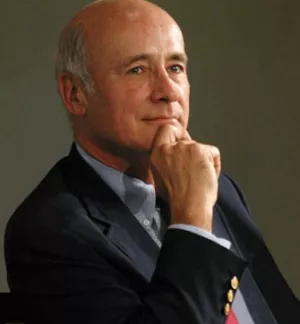As President Bush has said, "We have a serious problem: America is addicted to oil." The good news is that the president wants to reduce American imports of oil from the Middle East by 75 percent over the next two decades. The bad news is that even if his program succeeds, it will not do much to increase our energy security. We get only a fifth of our oil from the Persian Gulf.
At first glance, that makes the task look easy. We can switch to imports from Nigeria, Venezuela and other countries. But even if those countries remain stable, we will not be safe. What matters is the total amount of oil we import, not where it comes from.
The United States consumes a quarter of the world's oil, and depends on imports for 60 percent of it. Most experts agree that the problem is not that the world is running out of oil anytime soon—even with growing demand from China and India. More than a trillion barrels of reserves have been proven, and more is likely to be found. But two-thirds of the proven reserves are in the Persian Gulf and vulnerable to political disruption.
Suppose there is a crisis in the Persian Gulf—let's say over Iran's efforts to get nuclear weapons. Most experts predict that would drive the price of oil over $100 a barrel. And that would include the Venezuelan, Nigerian and other oil we consume. The rapid rise in prices would harm our economy regardless of where the oil comes from.
We learned that lesson 30 years ago. After the Arab-Israel war of 1973, Arab oil-exporting countries embargoed oil sales to the United States to punish us for our support of Israel. But the oil destined for the U.S. was shifted to other countries such as Japan, and oil destined for other countries found its way to the United States. Oil is a fungible commodity, and markets clear at a common price. When the dust settled, it turned out the U.S. and other importers all suffered roughly the same degree of shortfall and paid the same high price.
What this means is that we have to slake our overall thirst for oil. In the past, rising prices have helped slow oil consumption in the U.S. Since the price spikes of the 1970s, the U.S. is using only half as much oil per dollar of production as we did 30 years ago. But more than half the oil we use goes for driving our cars and trucks. We will not solve our energy security problem until we get better at fuel economy. Bush has taken one step in the right direction, but we still have a long way to go.
Joseph S. Nye Jr. teaches American foreign policy at Harvard and is the author of "The Power Game: A Washington Novel."
Nye, Joseph. “America's Thirst for Oil.” Chicago Tribune, February 10, 2006


